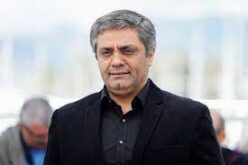Al-Monitor – Iran’s top nuclear negotiator, Ali Bageri Kani, is leaving Vienna for Iran for what might be the final sign-off on a deal which would restore the Joint Comprehensive Plan of Action (JCPOA).
Iran has been negotiating in the Austrian capital with the other JCPOA signatories — the UK, France, Germany, Russia, and China — and indirectly the United States, which withdrew from the deal in May 2018.
“We are in the last mile,” reports Ali Hashem from Vienna. “The mood here and in Tehran has been mostly optimistic that a deal is within reach, with details over the sequencing of sanctions relief and Iranian nuclear compliance quite advanced, given the back and forth on the drafts. The prisoner exchange also seems part of the package, albeit via a separate channel.”
Hashem elaborates, “There are major breakthroughs that logically makes a breakdown unlikely, and now is probably the time for Iranian officials to assess and see whether the bargain pays. Kani needs to be clear on the red lines before signing off.”
Hashem adds that it is unclear what impact, if any, Russian President Vladimir Putin’s actions in Ukraine may have on the Iranian negotiating stance.
Hot take 2: Russia so far not linking Iran deal to US posture on Ukraine
While the Biden administration has slapped Russia with an array of sanctions for its actions in Eastern Ukraine, the US and Russia remain mostly aligned in pressing ahead to close an Iran nuclear deal in Vienna.
“Moscow wants to restore the JCPOA. And Russia is good at compartmentalization when it decides to do so,” says Samuel Charap, senior political scientist at the RAND Corporation. “Therefore, I don’t expect the Ukraine events to change Russian policy on the JCPOA.”
“On other issues where Russia sees itself as doing the US a favor, we can expect negative linkage. But not this one,” adds Charap.
Fyodor Lukyanov, chairman of the Presidium of the Council on Foreign and Defense Policy in Moscow, agrees.
“No linkage has been seen yet,” Lukyanov tells Al-Monitor. “While relations are deteriorating rapidly on the European front, Russian diplomats continue to work with others on the Iranian dossier. No changes yet, at least. There are some individuals who publicly call to start torpedoing the US at any occasion, including multiple diplomatic efforts not connected to the Ukrainian issue, but it doesn’t seem they represent any line close to the real one.”
“As in 2015, Russia has no particular expectations” with regard to the benefits of a nuclear deal, if it happens, adds Lukyanov, who also serves as research director of the Valdai International Discussion Club. “Military cooperation, of course, but the Iranian market will be rather competitive then, and Iranians will have a broader assortment of sellers to choose from.”
“Probably the increase of economic cooperation in the Eurasian framework” is the most promising, Lukyanov says. “There is a visible dynamic with the economic interaction, and sanctions against Iran did bar full-scale cooperation.”
From our regional correspondents
Israel juggles US, Russia ties amid Ukraine crisis
The unfolding conflict in Ukraine has created a delicate balancing act for Israeli leaders trying to manage relations with Russia and the United States. Israel has tended to distance itself from the issue, and in 2014 abstained from a UN vote sanctioning Russia for its annexation of Crimea.
But if forced to choose, Ben Caspit writes that Israel this time will “side with the United States despite its vested interest in security cooperation with President Vladimir Putin, whose troops cast a dark shadow over Israel’s northern front.”
 Shabtabnews In this dark night, I have lost my way – Arise from a corner, oh you the star of guidance.
Shabtabnews In this dark night, I have lost my way – Arise from a corner, oh you the star of guidance.



